by Gary Powell
This site is a very personal self-help manual for me. When beginning my career in music, the kind of mentoring insights, like the ones found here, were either absent, misleading, or simply wrong. Within this site we have visited Benjamin Franklin, Galileo, Aristotle, Rosa Parks and even Joseph Stalin. All of these people have a connection to the American holiday of July 4th; all positive ones, excepting the latter. 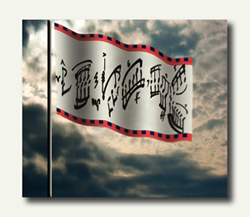 Joseph Stalin represents the worst of what human beings are capable of when our institutions, governments and lizard-brain fears become enmeshed.
Joseph Stalin represents the worst of what human beings are capable of when our institutions, governments and lizard-brain fears become enmeshed.
Parallel to our American heritage, my experience with institutions is that they simply have no idea what to do when a person who colors outside of the lines shows up. Missing the contribution of individuals, or not identifying talent which does not fit nicely into an existing 18th century societal curriculum, is still common to this day. Within this blind spot is where the institutions must adopt and change or risk becoming irrelevant. England rejected the idea of their own irrelevance and neither prepared for it or won the war. Fast-forward 232 years and we can project that the shear muscle of tradition, branding-power and sweat-shops won’t be enough to sustain similar institutions after The New 1776 goes world-wide. What’s this got to do with music or a successful career in the arts?
With some 45 million of my productions having been sold in 47 countries it’s hard to argue that I have not been successful. This, however, is not a simple success story. It is one that is best understood within the context of how and what I have contributed to and negotiated with – both small and large organizations and even individuals. There are not just insignificant nuances to understand about a career in music of this length. There are also accidents of fate, manipulations, weather, betrayals, luck, and bold personal moves. The New 1776 is about understanding everything in our careers until that time when old strategies transform into bold moves. The Declaration of Independence was THE bold move of our country. This came after decades of negotiations and measured strategies which did not work. We each have to know when OUR time for a bold move has come.
Most of my words here are written as fuel for personally stretching to reach my own goals. My goal is to achieve a greater integration of my talent, education, skills, self, and experience within a musical expression. Here, within this music-business blog, I have slowly been granting myself authorization to move forward in bold new ways.
In this regard, this blog is a very personal self-help manual.
It’s 1776 all over again for people like me, maybe you are another, who with conscious intention to serve the whole of the good, can now directly contribute and profit from your own individual authority. This is how we can best design and realize our well-earned and prosperous futures. I’m ready for the right people to win. The world is ready for the right people to win. How do we do it?
I’ve been supporting my artist friends since entering music school in 1970. However, I have ignored my own artistic vision to a fault. Now I find my vision pregnant with rich content – born from my own bitter wars of disappointment and the abject folly of success. Within this context, which only experience brings, I have lost all fear.
Here are some guidelines I’ve set for myself.
Do not follow or artistically try to find my audience. That’s what record companies are good at, not artists.
Invite my audience into my own musical experience, even if I know it expects more from them. I have found most individual adults hungry for music which reflects the complexity and beauty of their own lives.
Through continued study and experimentation, both musically and otherwise, let my music show a personal reflection from these quests for understanding.
Boldly put this music out there. It was healing to write it, so now share it with great pride and little expectation.
Ask my friends and colleagues for help and support in any way with which they feel comfortable in participating.
From this 2008 Independence Day forward, on my site you will begin to find more links to iTunes and other download sites as well. I am now asking in a direct way for your help by forwarding my announcements to your friends and networks. You can also connect with me on Plaxo, Twitter, Facebook and Linkedin where I will be keeping my “Pulse” in regard to future releases. I will look forward to creating these new works and sharing them with all of you. We have so many ways to help each other now – through our social networks, writing and subscribing to blogs, and simple email, we can refer our support for each others’ efforts therefore inspiring more people to reach higher for others and deeper within themselves. This is how we build a world that we wish we were living in just as Thomas Jefferson did for us in 1776!
This is The New 1776 for the entire globe. It’s time to go inward and come out with a healing hand which only inspiration and aspiration can lend, remembering that within this freedom, we all contribute and support each other by our own choice. Happy 4th of July to the whole world. I’m choosing to win.
Helpful? Then Copy, Paste and Tweet It:
The New 1776 and How We Claim Our Own Authority. http://tinyurl.com/5tscyv
All Content of Gary Powell’s Site is Licensed Under a
Creative Commons Attribution-NonCommercial-NoDerivs 2.5 License

.
by Gary Powell
This site is a very personal self-help manual for me. When beginning my career in music, the kind of mentoring insights, like the ones found here, were either absent, misleading, or simply wrong. Within this site we have visited Benjamin Franklin, Galileo, Aristotle, Rosa Parks and even Joseph Stalin. All of these people have a connection to the American holiday of July 4th; all positive ones, excepting the latter.  Joseph Stalin represents the worst of what human beings are capable of when our institutions, governments and lizard-brain fears become enmeshed.
Joseph Stalin represents the worst of what human beings are capable of when our institutions, governments and lizard-brain fears become enmeshed.
Parallel to our American heritage, my experience with institutions is that they simply have no idea what to do when a person who colors outside of the lines shows up. Missing the contribution of individuals, or not identifying talent which does not fit nicely into an existing 18th century societal curriculum, is still common to this day. Within this blind spot is where the institutions must adopt and change or risk becoming irrelevant. England rejected the idea of their own irrelevance and neither prepared for it or won the war. Fast-forward 232 years and we can project that the shear muscle of tradition, branding-power and sweat-shops won’t be enough to sustain similar institutions after The New 1776 goes world-wide. What’s this got to do with music or a successful career in the arts?
With some 45 million of my productions having been sold in 47 countries it’s hard to argue that I have not been successful. This, however, is not a simple success story. It is one that is best understood within the context of how and what I have contributed to and negotiated with – both small and large organizations and even individuals. There are not just insignificant nuances to understand about a career in music of this length. There are also accidents of fate, manipulations, weather, betrayals, luck, and bold personal moves. The New 1776 is about understanding everything in our careers until that time when old strategies transform into bold moves. The Declaration of Independence was THE bold move of our country. This came after decades of negotiations and measured strategies which did not work. We each have to know when OUR time for a bold move has come.
Most of my words here are written as fuel for personally stretching to reach my own goals. My goal is to achieve a greater integration of my talent, education, skills, self, and experience within a musical expression. Here, within this music-business blog, I have slowly been granting myself authorization to move forward in bold new ways.
In this regard, this blog is a very personal self-help manual.
It’s 1776 all over again for people like me, maybe you are another, who with conscious intention to serve the whole of the good, can now directly contribute and profit from your own individual authority. This is how we can best design and realize our well-earned and prosperous futures. I’m ready for the right people to win. The world is ready for the right people to win. How do we do it?
I’ve been supporting my artist friends since entering music school in 1970. However, I have ignored my own artistic vision to a fault. Now I find my vision pregnant with rich content – born from my own bitter wars of disappointment and the abject folly of success. Within this context, which only experience brings, I have lost all fear.
Here are some guidelines I’ve set for myself.
Do not follow or artistically try to find my audience. That’s what record companies are good at, not artists.
Invite my audience into my own musical experience, even if I know it expects more from them. I have found most individual adults hungry for music which reflects the complexity and beauty of their own lives.
Through continued study and experimentation, both musically and otherwise, let my music show a personal reflection from these quests for understanding.
Boldly put this music out there. It was healing to write it, so now share it with great pride and little expectation.
Ask my friends and colleagues for help and support in any way with which they feel comfortable in participating.
From this 2008 Independence Day forward, on my site you will begin to find more links to iTunes and other download sites as well. I am now asking in a direct way for your help by forwarding my announcements to your friends and networks. You can also connect with me on Plaxo, Twitter, Facebook and Linkedin where I will be keeping my “Pulse” in regard to future releases. I will look forward to creating these new works and sharing them with all of you. We have so many ways to help each other now – through our social networks, writing and subscribing to blogs, and simple email, we can refer our support for each others’ efforts therefore inspiring more people to reach higher for others and deeper within themselves. This is how we build a world that we wish we were living in just as Thomas Jefferson did for us in 1776!
This is The New 1776 for the entire globe. It’s time to go inward and come out with a healing hand which only inspiration and aspiration can lend, remembering that within this freedom, we all contribute and support each other by our own choice. Happy 4th of July to the whole world. I’m choosing to win.
Helpful? Then Copy, Paste and Tweet It:
The New 1776 and How We Claim Our Own Authority. http://tinyurl.com/5tscyv
All Content of Gary Powell’s Site is Licensed Under a
Creative Commons Attribution-NonCommercial-NoDerivs 2.5 License

.
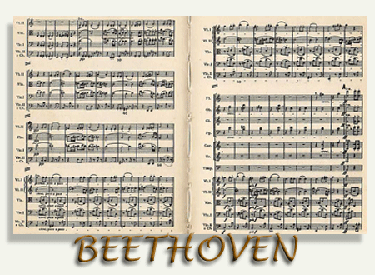

 You will probably, like me, find yourself needing to turn the page quickly, without even knowing you are being taught from the wrong book. In this societal time of personal imprudence, systemic corruption and waste, and the uncertainly of leadership, the teacher and the student now find themselves as unlikely roommates in their freshman year at WTF University!
You will probably, like me, find yourself needing to turn the page quickly, without even knowing you are being taught from the wrong book. In this societal time of personal imprudence, systemic corruption and waste, and the uncertainly of leadership, the teacher and the student now find themselves as unlikely roommates in their freshman year at WTF University! 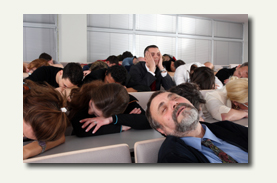 Yes, your Facebook Wall is an ongoing 24-hour a day convention for your business. In that, the content you post on Facebook, or any other social networking site, should be tightly controlled and consistent with your goals and then purposefully managed for the benefit of your convention-goers. We all want to attract people who will derive some benefit from our services and therefore visit often, and possibly even hire us or buy our products. We want them to see us as a valuable resource, right? Think of your future business leads and then consider how you would like them to see you. Are they interested in ground-breaking facts about your new hair color? How about that fascinating esophageal laparoscopic surgery I had this year? Wait, surely your future client, and the one client you have always waited for, will want to be notified when you walk your dog, are warming a can of Campbell’s soup or when you are waiting for your hair to dry.
Yes, your Facebook Wall is an ongoing 24-hour a day convention for your business. In that, the content you post on Facebook, or any other social networking site, should be tightly controlled and consistent with your goals and then purposefully managed for the benefit of your convention-goers. We all want to attract people who will derive some benefit from our services and therefore visit often, and possibly even hire us or buy our products. We want them to see us as a valuable resource, right? Think of your future business leads and then consider how you would like them to see you. Are they interested in ground-breaking facts about your new hair color? How about that fascinating esophageal laparoscopic surgery I had this year? Wait, surely your future client, and the one client you have always waited for, will want to be notified when you walk your dog, are warming a can of Campbell’s soup or when you are waiting for your hair to dry. 
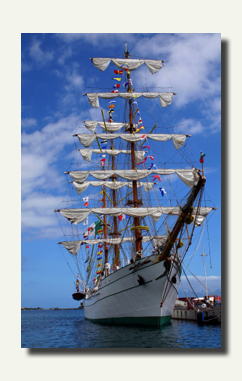 by Gary Powell
by Gary Powell
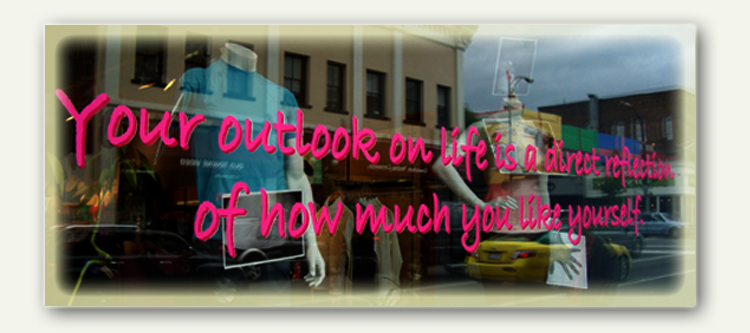 I photographed this little shop window in September, 2007, while visiting
I photographed this little shop window in September, 2007, while visiting  Joseph Stalin represents the worst of what human beings are capable of when our institutions, governments and lizard-brain fears become enmeshed.
Joseph Stalin represents the worst of what human beings are capable of when our institutions, governments and lizard-brain fears become enmeshed.